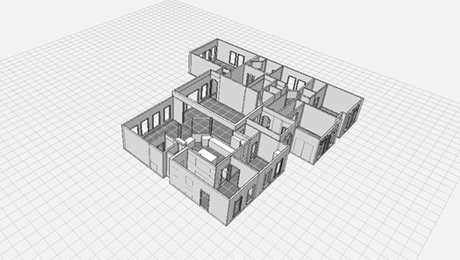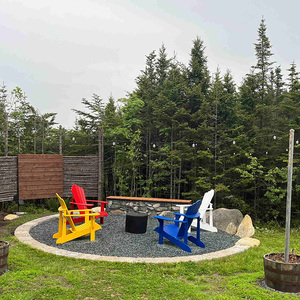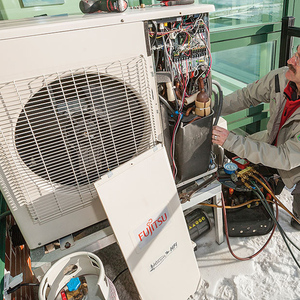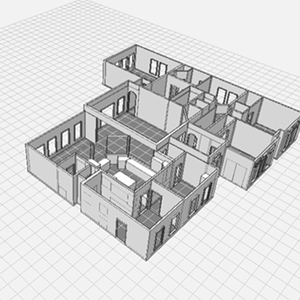I have to enlarge four holes in 1/8th inch steel from 3/8 to 1/2. I’ve tried this once before using a regular twist bit and it was awful. The bit would inevitably bind and I thought it was actually dangerous. I believe there is another type of bit, shaped like a stepped cone… and I remember it is called a Unibit. Would this type of bit be better suited for enlarging these holes? Is there a particular material the bit should be made of? Thanks!
Discussion Forum
Discussion Forum
Up Next
Video Shorts
Featured Story

Hover's smartphone app offers an easier way to get precise 3D scans.
Featured Video
How to Install Exterior Window TrimHighlights
"I have learned so much thanks to the searchable articles on the FHB website. I can confidently say that I expect to be a life-long subscriber." - M.K.
Fine Homebuilding Magazine
- Home Group
- Antique Trader
- Arts & Crafts Homes
- Bank Note Reporter
- Cabin Life
- Cuisine at Home
- Fine Gardening
- Fine Woodworking
- Green Building Advisor
- Garden Gate
- Horticulture
- Keep Craft Alive
- Log Home Living
- Military Trader/Vehicles
- Numismatic News
- Numismaster
- Old Cars Weekly
- Old House Journal
- Period Homes
- Popular Woodworking
- Script
- ShopNotes
- Sports Collectors Digest
- Threads
- Timber Home Living
- Traditional Building
- Woodsmith
- World Coin News
- Writer's Digest


















Replies
Uni bit is perfect for that.
Just stay away from Harbor Freight brand, Irwin is good, Greenlee better but more $$$$.
Ditto to Sphere. Good excuse for you to buy a new tool!
Jim
Never underestimate the value of a sharp pencil or good light.
I've actually done this with a good quality "repairman's reamer". A little tough on steel, but works real well on aluminum.
Thank you for your responses!
you need one of those step drill bits. they alway used them on american chopper. I have one but they are not cheap
You can use twist bits if you can use a drill press and clamp the work down. Otherwise the Unibit is the way to do. A cheap one will probably suffice for the few holes you need.
They are common among electricians, so an electrical supply house will have them.
I'd 2nd (or 3rd) the use of the step drill. I never use a twist drill bit in thin metal anymore.
-- and spin it SLOW - maybe use the geared down speed of a cordless drill.
A drill press would work the best, just because you can get a better, straighter pressure on the step bit.
I agree with the cone drill.
Twist drill bits can be used if they have the correct tip grind. I bought some years ago but when I want them to refresh my memory they are nowhere to be found. If you want to go this route Have a look at specialty drill bit suppliers, for eg:
http://www.milwaukeeconnect.com/webapp/wcs/stores/servlet/product_27_40028_-1_683840_192622_192327
I believe that you can occasionally find twist drills with a triple spiral. These (I've heard) are more stable when drilling thin materials.
So convenient a thing it is to be a reasonable Creature, since it enables one to find or make a Reason for everything one has a mind to do. --Benjamin Franklin
It doesn't matter how many flutes they have, spiral bits are never good in thin metal. Previous posters are right - use the step drill. As a general rule of thumb (especially if you want to keep both of yours) never use a twist drill bit larger in diameter than your little finger unless the work piece is clamped and on a drill press.
With more flutes there is less "chatter". There is still the tendency to "suck" the workpiece, of course, but that's controllable by controlling feed rate.
So convenient a thing it is to be a reasonable Creature, since it enables one to find or make a Reason for everything one has a mind to do. --Benjamin Franklin
Chatter isn't the issue. Fluted drills do not make round holes. Since the hole is not round, the bit catches on the "corners" as it revolves. With a 1/8" bit that's not a problem. But take a 3/4" bit attached to a 1 HP motor and suddenly the torque transmitted back to the guy trying to hold it steady is more that most people can handle.
The drills don't make round holes because they chatter.
So convenient a thing it is to be a reasonable Creature, since it enables one to find or make a Reason for everything one has a mind to do. --Benjamin Franklin
My projects include drilling lots of holes in metal. After ruining several metal units using a twist drill in a drill press, I purchase a step bit (uni-bit) and havn't looked back yet.
Ever watch OCC (Orange County Choppers) ??? They use nuthin BUT UniBits. That was my clue.
The Unibit is good but I've enlarged many holes in 1/8 steel from 3/8 to 1/2". Go slow, use slight feed pressure, and use a large drill motor with plenty of torque.